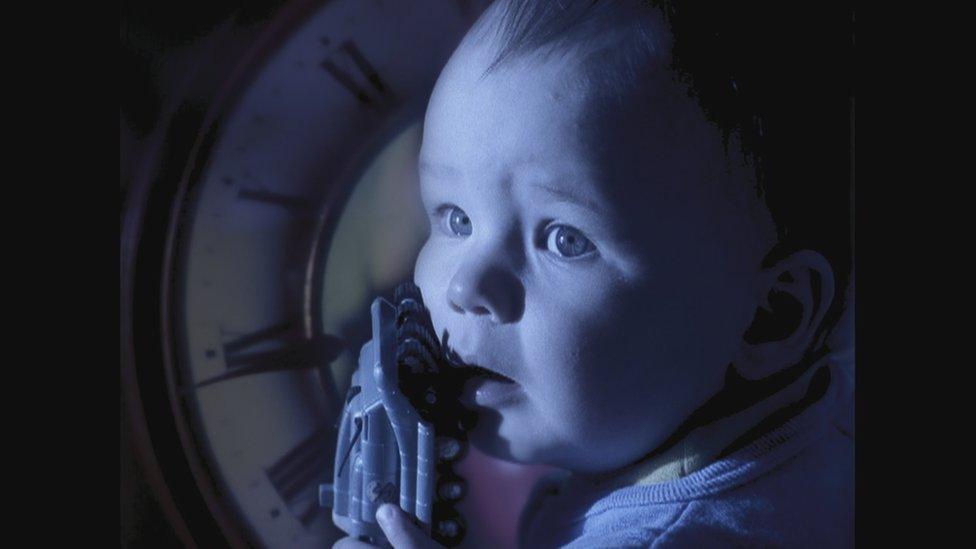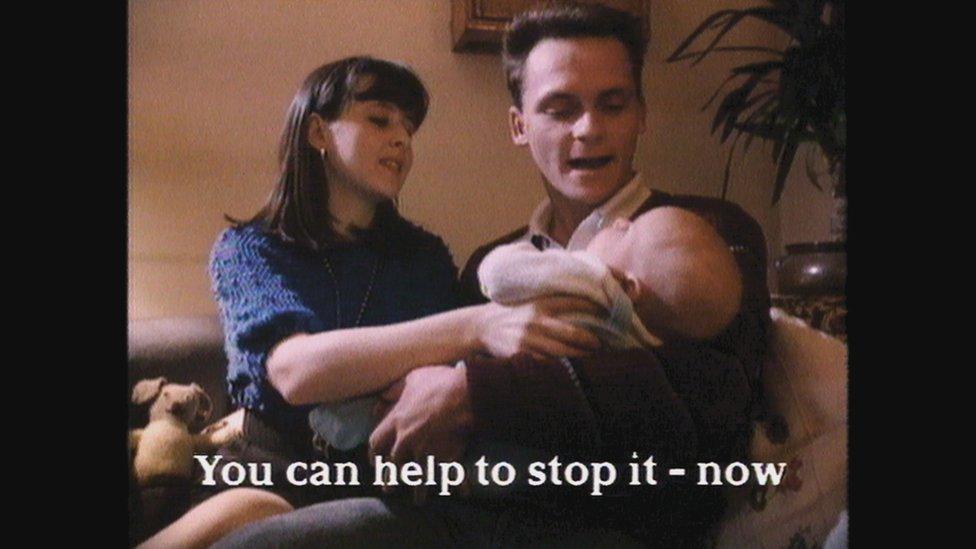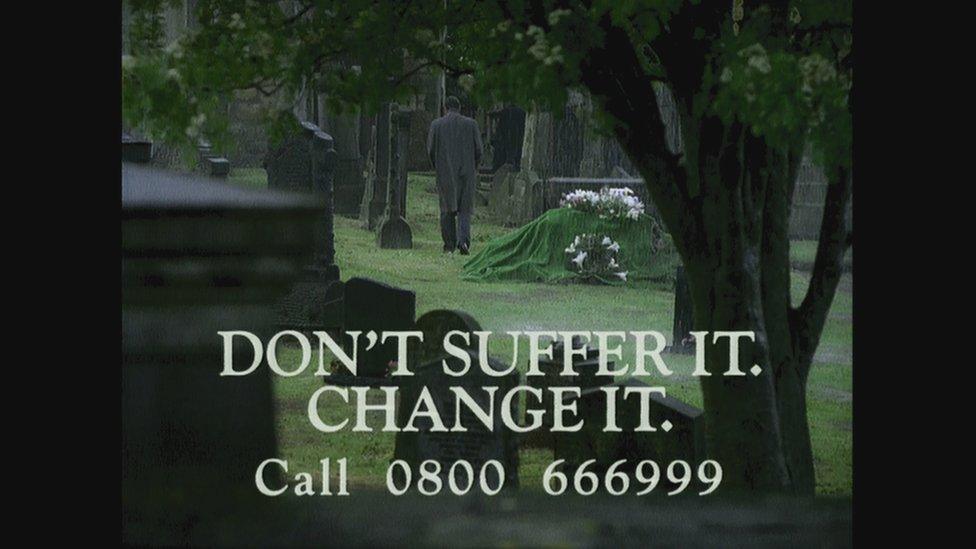Ads on the frontline: Changing hearts and minds
- Published
The Troubles ads made to change hearts and minds
A boy visiting his father in prison, a young man turning away from violence and a vision of a peaceful future for Northern Ireland.
Those were some of the images beamed into living rooms across Northern Ireland, hoping to change hearts and minds of those watching TV.
Ads on the Frontline is the story of how the government decided to step into the battle during some of the most violent and turbulent years of the Troubles.
It began commissioning public service commercials in the late 1980s. They were designed to influence opinion by putting the government's message directly into people's homes.
By the time of the Good Friday Agreement in 1998, more than 25 television commercials had been screened.

Many of the ads focused on creating a peaceful future for Northern Ireland
At the outset, the plan was to make a government-backed documentary in support of the security forces - which also promoted the Confidential Telephone Line.
However, when it became clear that this would not be acceptable for broadcast, the government decided to make its own adverts instead.

The first NIO advert was 'A Future' and was first aired in 1988
"A Future"
It is January 1988 and a film produced by the Northern Ireland Office (NIO) called "A Future" is about to be transmitted.
It tells the story of a young man who is fed up with how the violence in Northern Ireland has blighted his life and decides to do something about it by giving information.
David Lyle, an advertising chief executive who was involved, believes that the advert had a significant impact.
"A Future did increase useful calls. That was a good sign that it was making progress," he said.
However, not everyone was convinced. Journalist Suzanne Breen said it was difficult to gauge their impact.
"Would anyone have picked up the phone and rung the Confidential Telephone Line that would not have done that anyway? That was the question."
Shown in the wake of the 1987 Enniskillen bombing, footage of the aftermath of the explosion was included in the advert.
This film marks the start of a five-year strategy to use television adverts to get the government's message across.
Families
By 1992 the ads have been running for four years and the NIO decides to change tack.
The government shifts the focus away from supporting the security forces and condemning terrorism.

The adverts tried to encourage people to use the Confidential Telephone Line
Three new films were commissioned with higher production values - Car Wash, Lady and I Want To Be Like You.
They were aimed at the families of paramilitaries - especially of those who have been jailed.
Three months after the latest batch are launched the Shankill Bomb attack takes place, followed by the Greysteel pub shooting.
The government bought extra airtime.
Two years later, in August 1994, the IRA declared a ceasefire.
The loyalists followed a month later and a new advert, called A Time to Build , was rushed out.
Days Like This
In 1995 the NIO commissioned another 11 adverts at a cost of £2m.
The focus shifts again, this time to showing the lighter side of life here.
One film, Citizens, features Van Morrison's Brown Eyed Girl, while Boys uses a new song called Days Like This.
The song is cemented in the public consciousness when Van performs it in November as Bill Clinton visits Belfast to switch on the Christmas tree lights.
In 1996 the IRA ceasefire ends. As a result the Time Bomb advert is released and two months after it goes to air, Tony Blair is elected as prime minister.
The New Labour era has begun.
Mo Mowlam is appointed secretary of state.

In the run up to the 1998 Good Friday Agreement referendum the final NIO advert was broadcast
Andy Wood, former director of information at the NIO, recalls what happened next: "Mowlam very quickly let it be known that she thought the ads were a waste of time and money."
In 1998 a film called "Choices" was made - a compilation of clips from previous campaigns.
It goes out in March and in April the Good Friday Agreement is signed.
The following month a referendum backed the Good Friday Agreement and to this day opinion remains divided on the role Choices played in that outcome.
Ads on the Frontline will be shown on BBC One Northern Ireland on 23 May at 21:00 BST.